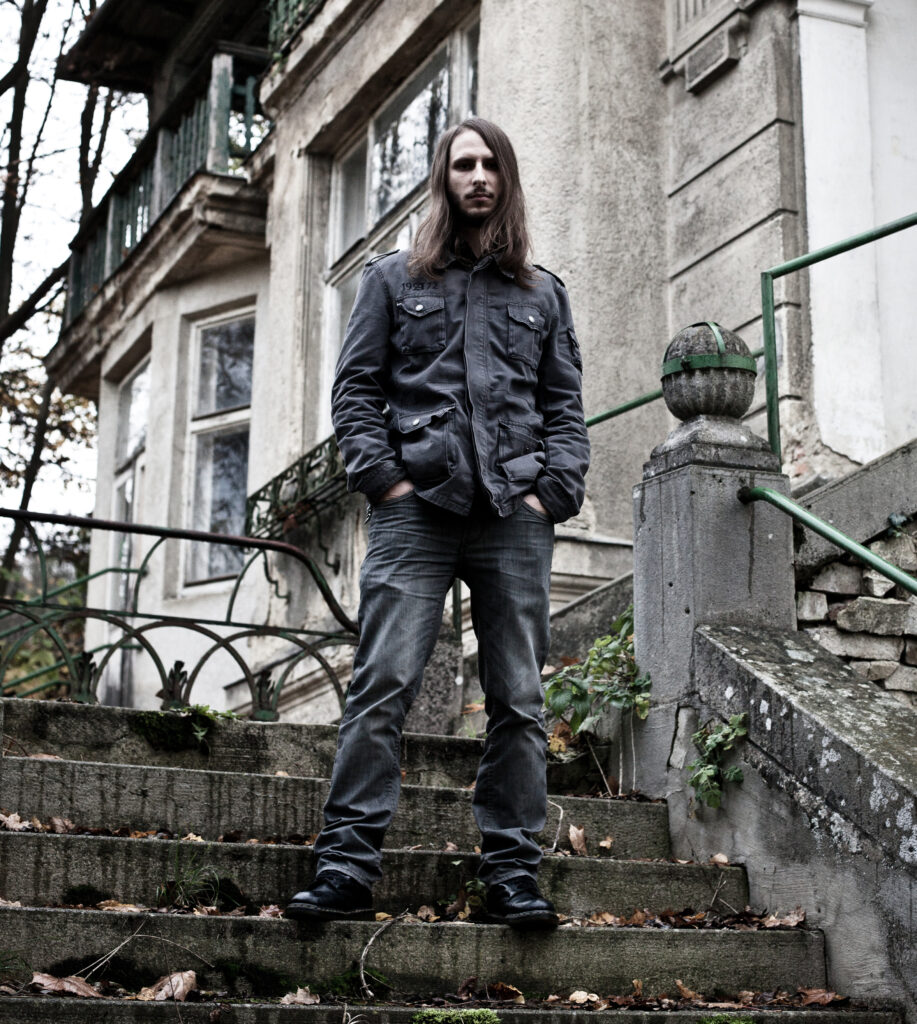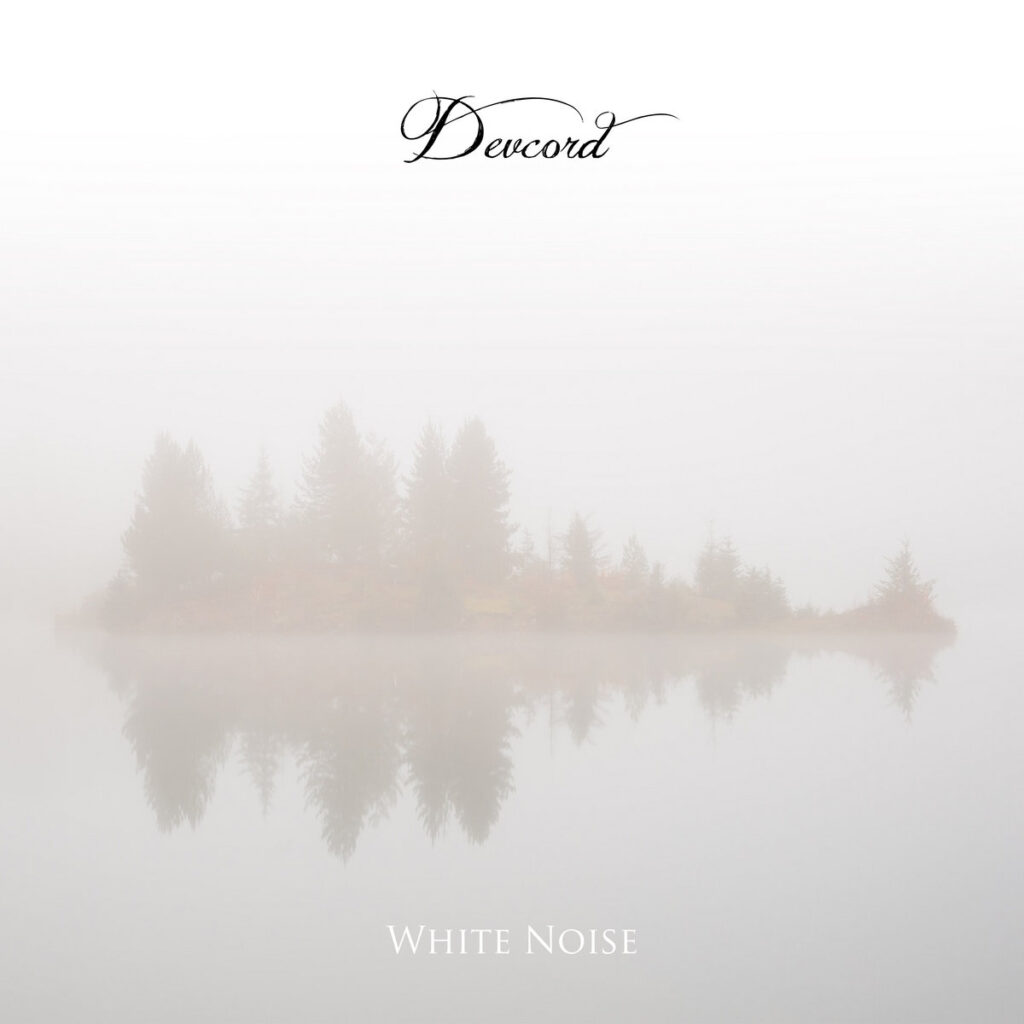Meet Peter Royburger, the mastermind behind the Austrian progressive metal project Devcord. Since its inception in 2014, Devcord has been Peter’s solo venture, allowing him complete control over every aspect of the music-making process. Drawing inspiration from bands like Opeth, Extol, and Porcupine Tree, Peter crafts a unique sonic tapestry that reflects his diverse influences while maintaining a distinct identity. With two albums under his belt, “Dysthymia” and “GODISNOWHERE,” and a recent EP titled “White Noise,” Peter’s musical journey has evolved alongside personal milestones, such as becoming a father. In our interview, we delve into the evolution of Devcord‘s sound, the impact of parenthood on his music, and the exploration of softer, atmospheric tracks in recent releases. Join us as we uncover the intricacies of Devcord’s creative process and glimpse into the future of this enigmatic solo project.
Devcord started as a studio project in 2014, with you, Peter Royburger, handling everything from songwriting to playing all instruments and production. What motivated you to embark on this solo journey, and how has it influenced the creative process for Devcord?
As a musician in a band, you always depend on other members, both considering songwriting and commitment. This is not the case with a solo project. I wanted a project where I have 100 percent control. This gives me the greatest possible creative freedom. Nobody interferes in the musical or technical process. I enjoy this a lot! The disadvantage is that you also bear 100 percent of the responsibility! Therefore reviews and criticisms exclusively concern me.
Your musical influences include bands like Opeth, Extol, Wilderun, The Faceless, Haken, and Porcupine Tree. How do these diverse influences come together in Devcord’s sound, and how do you approach paying tribute to these bands while maintaining your unique musical identity?
Finding influences of other bands in someone’s music is always very subjective. I can’t say whether you can really hear all of the bands mentioned in the question in Devcord. All I can say is that they have a big influence on me. I don’t dare decide whether this makes Devcord unique. I just make music that I would like to listen to myself. It’s like baking your own bread. You get inspired by different recipes and hope that others like the taste as well. And maybe even create something that no one else has eaten before.

The debut album “Dysthymia” was released in 2018, followed by “GODISNOWHERE” in September 2021. Can you share the evolution of Devcord’s sound between these two albums and how becoming a father in the same year influenced your approach to music?
The work from the first to the second album was almost seamless. For example, I had already finished recording a track for “GODISNOWHERE” during “Dysthymia”. I think there wasn’t that much musical development to be honest. Perhaps my recording expertise has evolved more than my musical style. However, if you listen to “White Noise”, there has definitely been a musical development here. This step didn’t just happen, it was quite deliberate, because I simply didn’t have the time for complex songwriting due to the fact that I also had to fulfill my fatherly duties. “White Noise” was something of a compromise but ultimately also a good opportunity to do something different.
The second album, “GODISNOWHERE,” was released in a year when you became a father. How did the experience of becoming a parent impact the thematic elements and the overall tone of the album?
As I said, the fact that I was now a father forced me to adopt more of minimalistic style of music. However, this fact didn’t bother me. On the contrary, I was excited to try something different. In addition, new topics opened up for the lyrics. “The picture and the frame”, for example, is about the ambivalent feelings towards my daughter. In a nutshell, the song says that being a father is very hard at times, but it won´t ever affect my love for my child.
The five-track EP “White Noise” was released in February. What can listeners expect from this release, and how does it differ from your previous albums in terms of musical style and themes?
Anyone who knows the first two Devcord albums might hear something unexpected. There’s no growling on “White Noise” and actually no metal either. The sound is completely different to the first two releases. In “White Noise” the voice is clearly in the spotlight. Also a polyphonic voice was very important to me. In terms of musical style, it almost has an unplugged character. This time the topics are very personal. “A dire Prophecy,” is about my sister-in-law who died of cancer. And as already mentioned, “The picture and the frame” is about my daughter and me.
With the limited time you had in 2021, you mentioned leaning towards less complex songwriting and creating softer, more atmospheric tracks. How did this shift in approach shape the creative direction of “GODISNOWHERE,” and did it open up new avenues for your musical expression?
I would say “White Noise” was an interesting trial to get into gentler territory. If I hadn’t become a father, my third album would probably have been very similar to “Dysthymia” and “GODISNOWHERE”. At least I would have stuck with the progressive. But I would include tracks in the style of “White Noise” into a long player in the future.

Being the sole musician in Devcord, what challenges and advantages do you encounter in handling all aspects of the music creation process? How do you maintain a balance between creativity and the technical aspects of production?
Originally Devcord was not intended for the public. Back then my former band “Tripminus” was in the process of breaking up and I wanted to continue making music and have absolute control this time. I enjoy the advantages that come with a one-man show, but of course I also have limitations. As you may (or may not) notice, I am neither a professional musician nor a professional producer. In my head it will always sound better compared to what comes out of the speakers in the end. Creativity is rarely the problem, but rather the technical implementation.
“White Noise” as an EP suggests a concise and focused musical exploration. Can you elaborate on the thematic or conceptual elements that tie the tracks together, and how does it contribute to the overall narrative of Devcord?
To be honest, all Devcord albums are thematically very close to each other. There are hardly any songs that have a lot of positivity in them. Mostly it’s about grievances – from global dimensions to personal fates. When I write lyrics, I concentrate on what concerns me. Things that are going well in life don’t have to be broadcasted to the world in my opinion. When things go well, we generally lean back and enjoy. Usually we only want to talk about issues that bother us. That´s what I believe at least. With “White Noise” I delved very specifically into personal topics and these topics are no fairy tales.

How do you see Devcord evolving in the future, especially considering the shift in songwriting style and the exploration of softer, atmospheric tracks in recent releases?
My answer is short and possibly unsatisfactory. I just do not know. Let´s see what happens!
As a solo project, do you have plans to collaborate with other musicians or explore different formats for Devcord in the future? If so, how might this impact the creative process and sound of the project?
Actually, I do work with other musicians. I am active on stage with my cover band “Kids of the 90s”. Regarding the Devcord project from this point I can’t say whether and how things will continue musically, but I can say one thing for sure: Devcord (if music follows in the future) will always remain a solo project. Things look different with my new studio project. Several musicians are involved. But I can’t say when we’ll publish anything yet. But there will definitely be something new. Stay tuned!
Follow Devcord on Facebook here.

